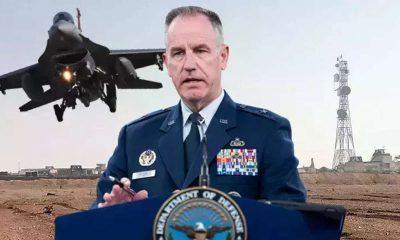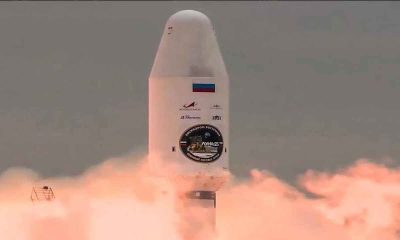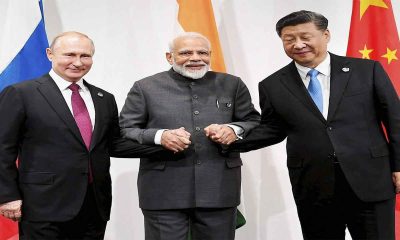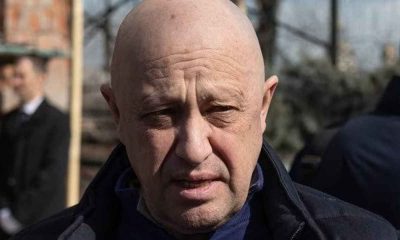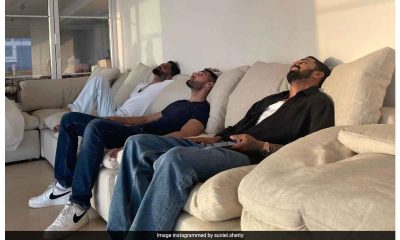Latest world news
Now Trump has blood on his hands
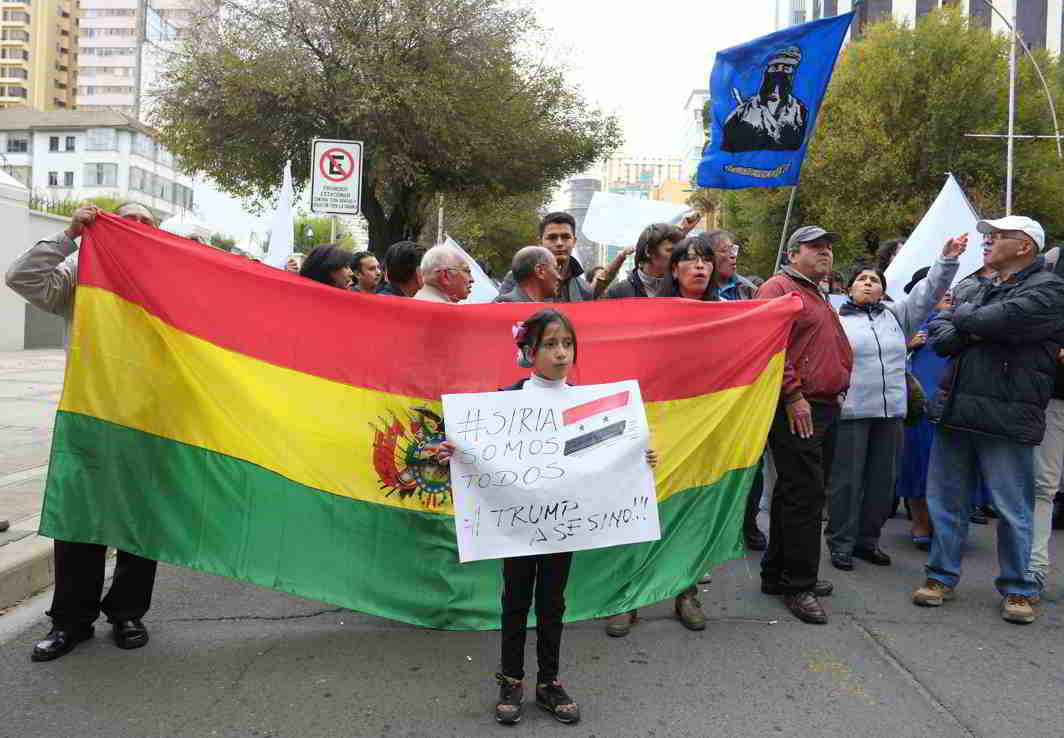
[vc_row][vc_column][vc_column_text]The friendship with Putin is over for now as the US president makes a policy turnaround and bombs Syria, post the deadly chemical attack there by the Assad government
By Sujit Bhar
Those were the days when former US President, Peace Nobel Laureate Barack Obama, so badly wanted to bomb the Syrian regime of Bashar al-Assad. He thought it would be a cool idea to help the ‘rebels’, who were sometimes closing in on and sometimes being bombed by Assad’s forces, by providing strategic air support. Of course, he never thought about boots on the ground.
He sent the planes soaring, and it was then that somebody drove a different type of sense into him: The banned militant group of Muslim Brotherhood had mingled with the rebels and was aiming to drive up Assad’s lawn. Helping the ‘rebels’ would also mean helping this banned group of extremists, giving rise to more problems for the Middle East, the US and for the world.
The fighter jets were ordered back.
Then, shocking the world, Donald Trump assumed the presidency of the US. A known Vladimir Putin admirer and Russia backer, Trump had courageously set his eyes away from Syria. “See no evil,” he said.
But good times never last. Assad had to go and use the deadly Sarin gas on his people, killing at least 85 in the rebel-held town of Khan Sheikhoun on April 4. Trump, of course, is educated on the evils of chemical weapons, and how even the children—at least two dozen of them—had to suffer immensely, till their bodies were paralysed and their diaphragms collapsed before they died. It was too much, even for Trump.
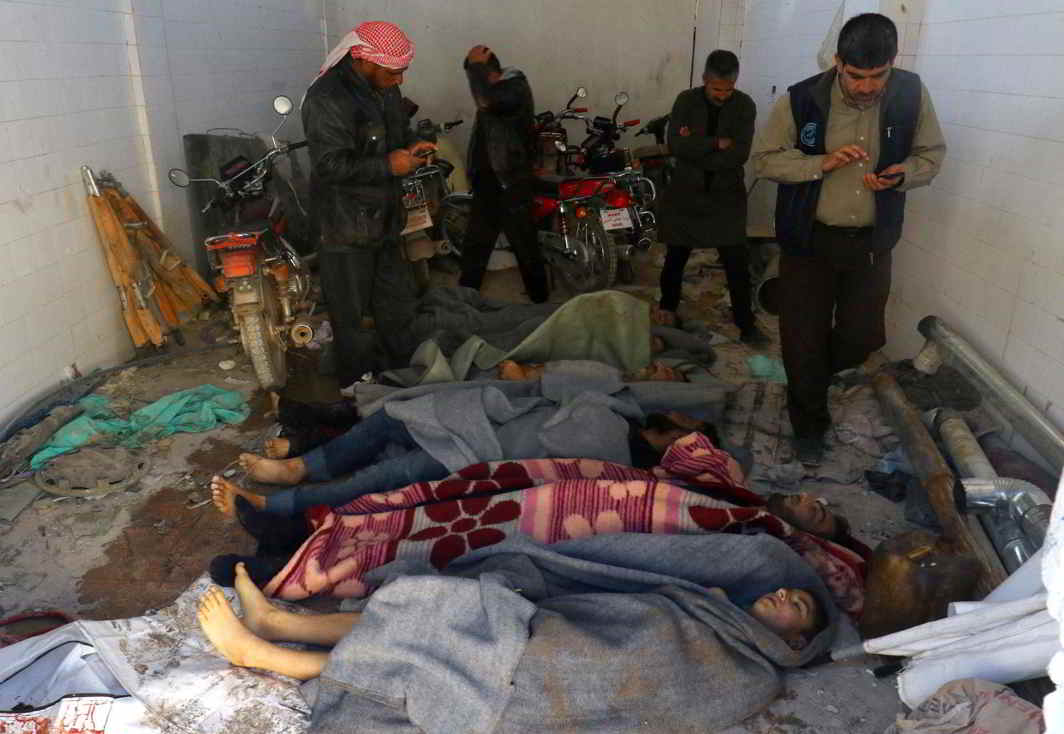
DASTARDLY ACT: Men gather near bodies, after a suspected gas attack in the town of Khan Sheikhoun in rebel-held Idlib, Syria, by government forces
Sarin is a banned chemical agent and the world’s Sarin stores are being destroyed. Except Assad’s.
In a matter of 24 hours, Trump had made a 180-degree turn and ordered a missile strike against Assad. US destroyers USS Porter and USS Ross, stationed in the eastern Mediterranean Sea, fired 59 Tomahawk Land Attack Missiles, wreaking havoc within the Assad administration. That possibly indicated the end of the US’s hands-off policy in the region.
The Pentagon has reportedly said that the missiles targeted “aircraft, hardened aircraft shelters, petroleum and logistical storage, ammunition supply bunkers, air defence systems, and radars” located at the al-Shayrat airbase in Syria. This was the first time since 2011, when the Syrian civil war began, has the US taken direct action.
The problem with firing missiles into any populated region is that it also delivers collateral damage, one reason why the US had the hands-off policy in the first place. Now a Syrian news agency reports that nine civilians, including four children, were killed in the strike. There is nobody to verify if those people were actually in the vicinity of al-Shayrat airbase during the strike. But bad news, even if it is fake, does travel fast.
US intelligence, according to reports, had believed that the al-Shayrat airbase was used to launch the chemical attacks. And Trump’s official response did little to dispel doubts of local tragedy. His statement, issued from his Mar-a-Lago holiday estate, said: “Tonight, I ordered a targeted military strike on the airfield in Syria from where the chemical attack was launched. It is in the vital national security interest of the United States to prevent and deter the spread of chemical weapons.”
That didn’t seem concomitant with general US foreign policy of “protecting” the weak around the world. While it was nearer Trump’s stated position of “protecting the interests of America”, what American interest in a distant airfield these strikes were protecting would be difficult to explain.
So why is Trump scared of assuming a position of strength, in admitting America’s “tradition” of spreading foreign policy throughout its administrations, including its defence and security establishments? Media reports points at his “narrow” thinking, which fails to realise a broader perspective and of greater good.
However, there could be another reason: Russia.
The Trump administration has been in jitters through its connections with Russia and America’s bogeyman Vladimir Putin, president of that Republic. Russia, Assad’s protector, has reacted angrily despite the Pentagon’s pre-strike information to Russia “using its established ‘deconfliction channel’”, as per reports in the media.
But Putin has come out and said the strike was “aggression against a sovereign state in violation of the norms of international law”. Tongue-in-cheek media reports have quoted Russian news agency Sputnik, which quoted Kremlin spokesperson Dmitry Peskov as saying that the Russian president thinks this strike was under a “trumped-up pretext”.
Two things emerge. First, Trump has to stick to his stance on Assad. It is understandable that he can well turn around tomorrow and call Assad a good boy. But he has to strike a balance between what he does and what he says, as well as with how he wants to treat Putin.
Secondly – and this can go to Trump’s advantage – Putin may cry himself hoarse over bombing a sovereign nation, but he cannot, in civil society, condone the use of Sarin gas on innocent civilians, especially children. That jeopardises his position around the world.
Technically, while Trump would be on a diplomatic high from these attacks – Democrats would find it hard to find fault in this, especially when Obama failed to take any proactive stance and action on Assad—he could also be pressured from his early view of Putin.
The Cold War seems to have been revived, albeit through a back door.
According to a Pew Research Center report of January this year, when people were asked how much confidence they had in Putin to do the right thing in world affairs, the general trend in Western Europe was an upward one. France was up at 20 percent positive, UK at 20 and Germany and Italy both at 31. These figures have risen sharply since 2016.
On the other hand a March Gallup poll found that Trump’s job approval rating had slumped to 37 percent. It said that 58 percent of Americans didn’t like his presidency.
Not that such polls really make any difference to overall world geopolitics, but if Trump has to take the Congress’ green light for further spending on defence production (he wants a $ 30 billion raise), he will have to play a bit of the game by their rules. Executive orders may try and ban entry into the country (even that the courts have not agreed to), but they surely do not fetch funding from the treasury.
So Trump finally has blood on his hands, and when the Putin towel isn’t around to wipe it on, he will have to learn to live with it. Diplomacy at the top level can’t always be about pontificating from Trump Towers.[/vc_column_text][/vc_column][/vc_row]
Latest world news
Bigg Boss 14 contestant Rahul Vaidya struggles walking in knee deep water, compares Dubai rains with Mumbai floods
Singer and TV personality Rahul Vaidya was recently stranded in the Dubai rains.

Rahul Vaidya, who was in Dubai ahead of his show which was scheduled to take place today, left the country due to heavy rains and reached Kolkata. The artist shared on social media his encounters in the UAE city, including challenges like walking through knee-deep water. Rahul provided an update regarding the heavy rainfall in Dubai on his Instagram profile.
The Bigg Boss 14 contestant revealed that he was in Kolkata and prepared to do an evening performance. Recalling the terrifying period he went through, Vaidya said there was a lot of confusion and panic in Dubai. The situation was similar to that when heavy floods hit Mumbai in 2005.
Vaiday also posted seval other images and videos of cars that were underwater and flooded roadways. The Bigg Boss 14 contestant, who shared his ordeal, claimed that even though it had just rained for two hours, the situation was dire.
In one of the video, which went viral he can be seen struggling in walking in knee-deep water. He can be also seen holding his sneakers in one hand and with other hand he was seen managing other things.
This is the result of the two hours of rain that it had, he can be heard saying in the video. Vidya also said he dosen’t believe Dubai is accustomed to a lot of rain. Everything had stopped working, he remarked.
After taking part in the first season of the singing reality show Indian Idol, Rahul Vaidya gained widespread recognition. In addition to Bigg Boss, he took part in Khatron Ke Khiladi 11.
Meanwhile, heavy rains that triggered flooding in the UAE and Bahrain, which left 18 people dead in Oman on Sunday and Monday, have paralyzed the financial hub of the Middle East, Dubai.
A lot of incoming flights were diverted from Dubai’s international airport because of the rain. At 7:26 p.m., the busiest airport in the world for foreign visitors stopped accepting new arrivals; a gradual resumption was announced for more than two hours later.
Images of planes navigating flooded tarmacs are making the rounds on social media.
According to pictures shared on social media, the flagship malls Dubai Mall and Mall of the Emirates both experienced heavy floods, while at least one Dubai Metro station had water up to the ankles.
There were several road collapses, severe flooding in residential areas, and numerous reports of leaks from windows, doors, and roofs.
Due to the unfavourable weather, schools around the United Arab Emirates were forced to close, and as more storms are predicted, the closures are anticipated to last until Wednesday. The government of Dubai allowed its staff to work remotely till this Wednesday.
Latest world news
Dubai sky turns green during storm in UAE, video goes viral
The UAE witnessed record-breaking rainfall on Tuesday and the National Centre of Meteorology recorded 254 mm of rainfall in less than 24 hrs in the Khatm Al Shakla area in Al Ain.

1 person was killed in UAE as it witnessed heavy rainfall on Tuesday, stranding commuters, flooding roads, disrupting trains and flights and resulting in water leakage from mall ceilings. The UAE witnessed record-breaking rainfall on Tuesday and the National Centre of Meteorology recorded 254 mm of rainfall in less than 24 hrs in the Khatm Al Shakla area in Al Ain. It is being said that the rainfall was the highest documented since the start of data collection in 1949.
The heavy rainfall in UAE came days after a similar situation in neighbouring Oman, where 13 people were killed in flash floods. Many parts of Oman saw torrential rains, which caused students to be trapped in buses and swept away motorists and trapped people in their homes.
Videos from Dubai circulating on social media showed widespread waterlogging on roads in Abu Dhabi, Dubai and other important cities. This left daily commuters in cars and other vehicles struggling to get back home. Dubai metro station too was seen flooded and closed.
One such video circulating on social media shows the aerial view of the city of Dubai from the top of a building. In the video the stormy winds are seen blowing over the city of Dubai. As the storm intensifies the Dubai sky turns green and ultimately gets covered by heavy rainfall. The video has gone viral on social media with more than 1.1 million views.
Another video showed water leakage from the ceilings of shopping malls, flooding the floors and destroying goods. A video which was shot in the famous Mall of the Emirates, showed pieces of ceiling falling as the rainwater gushed inside. Videos from many outlets of the Deira City Centre mall chain showed escalators being rendered unusable. Majid Al Futtaim, the company which owns the Mall of Emirates, said that the shopping complexes have been kept open and the customers are being sent away from the flooded areas.
India News
Sri Lankan Minister Douglas Devananda says statements on reclaiming Katchatheevu island from Sri Lanka have no ground
Devananda told the media on Thursday that it is not unusual to hear such claims and counterclaims about Katchatheevu as elections are taking place in India.
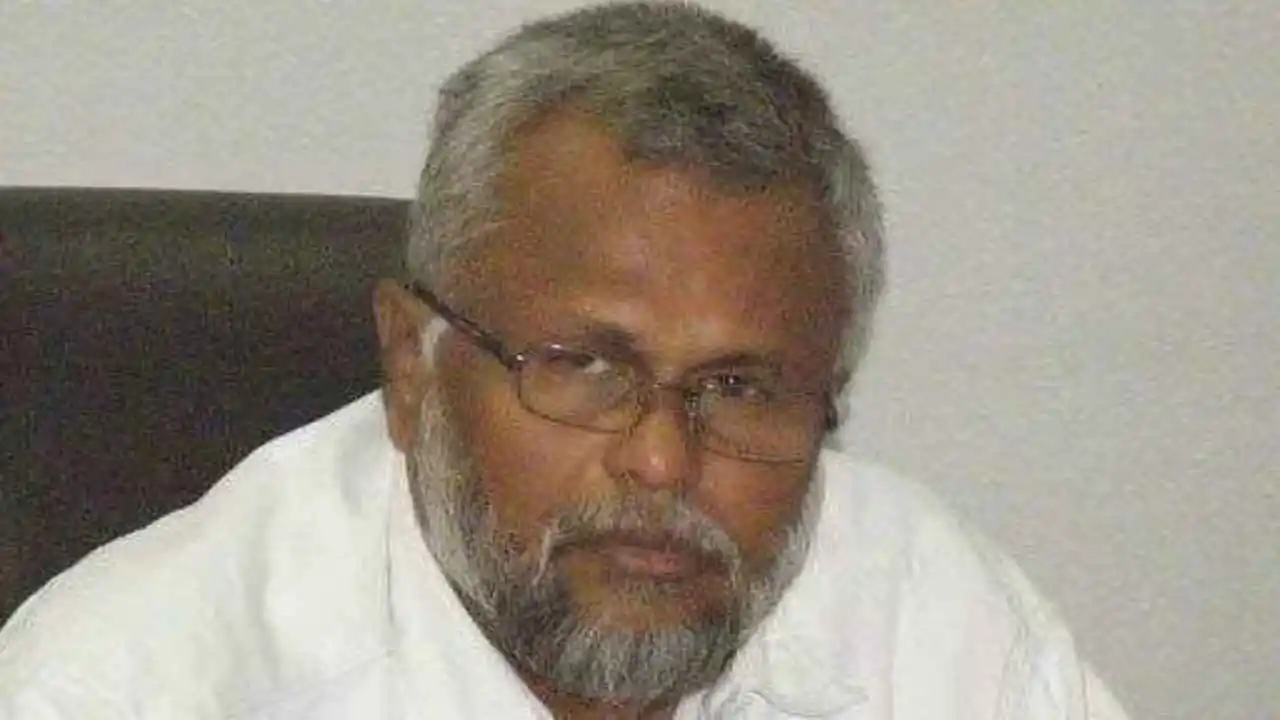
Sri Lankan Minister Douglas Devananda has said the statements from some political leaders in India on reclaiming Katchatheevu from the island nation have no ground. He told the media on Thursday that it is not unusual to hear such claims and counterclaims about the strategic island as elections are taking place in India.
The Sri Lankan Minister said he thought India is acting on its interests to secure this place to ensure Sri Lankan fishermen would not have any access to that area and that Sri Lanka should not claim any rights in that resourceful area. According to the 1974 agreement, Devananda said Indian and Sri Lankan fishermen can go fishing in the territorial waters of both countries until the pact was reviewed and amended in 1976.
The amended agreement resulted in fishermen from both countries being barred from fishing in neighboring waters. India’s ministry of External Affairs (MEA) on Thursday steered clear of the row surrounding Katchatheevu island. To a volley of questions on the Katchatheevu issue, MEA spokesperson Randhir Jaiswal reffered to External affairs Minister S Jaishankar’s recent comments on the matter.
He said he would like to talk about the issue that has been raised. He added the External Affairs minister has spoken to the press here in Delhi and also in Gujarat and has clarified all the issues. He said everyone should look into the press engagements and they would find the answers to their questions there.
The remarks from Devananda, a Sri Lankan Tamil, came days after the Narendra Modi government accused the Congress and its ally DMK in Tamil Nadu of overlooking national interests by handing over Katchatheevu island to Sri Lanka in 1974. The BJP has also been slamming the 2 parties for not ensuring the rights of the fishermen wanting to fish in waters around the island.
-

 India News23 hours ago
India News23 hours agoLamborghini Gallardo worth nearly Rs 1 crore set on fire over business dispute
-
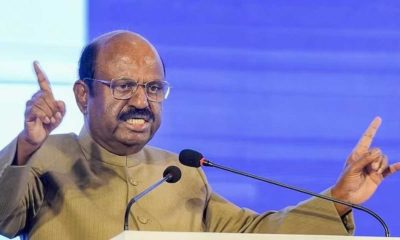
 2024 Lok Sabha Elections22 hours ago
2024 Lok Sabha Elections22 hours agoElection Commission advises Bengal Governor to not visit Cooch Behar on voting day
-
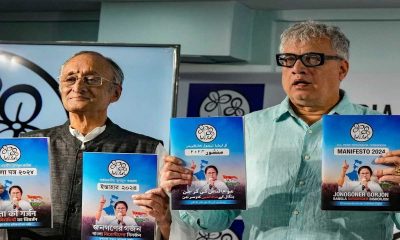
 2024 Lok Sabha Elections23 hours ago
2024 Lok Sabha Elections23 hours ago2024 Lok Sabha elections: TMC releases manifesto, Mamata Banerjee vows to scrap CAA, stop NRC
-
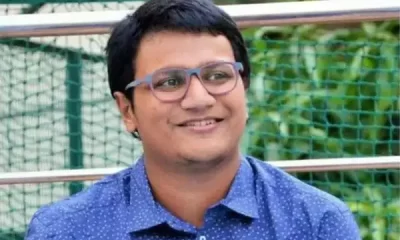
 Trending22 hours ago
Trending22 hours agoSocial media users pay tribute to viral sensation Abhradeep Saha as Angry Rantman dies at 27
-

 LATEST SPORTS NEWS6 hours ago
LATEST SPORTS NEWS6 hours agoIPL 2024: Delhi Capitals thrash Gujarat Titans by 6 wickets
-
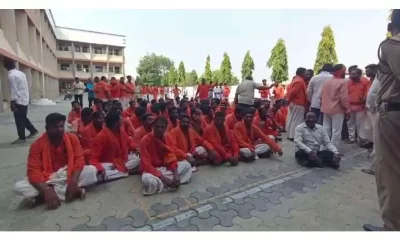
 India News4 hours ago
India News4 hours agoReligious outfit vandalises The Blessed Mother Teresa High School in Telangana after teachers object to students wearing Hanuman Deeksha dress
-
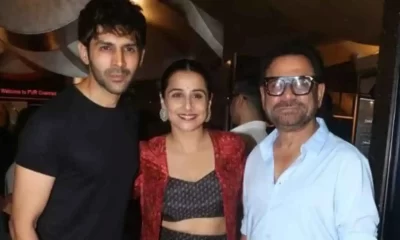
 Entertainment2 hours ago
Entertainment2 hours agoBollywood stars Vidya Balan, Kartik Aaryan, Pratik Gandhi, Ileana D’Cruz, Mouni Roy, Radhika Madan, Mrunal Thakur attend Do Aur Do Pyaar premiere
-
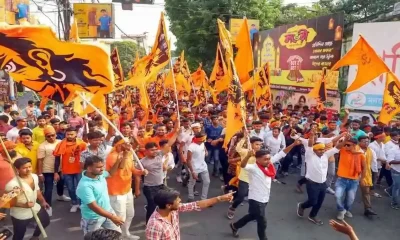
 India News5 hours ago
India News5 hours agoClashes erupt during Ram Navami procession in West Bengal’s Murshidabad district

